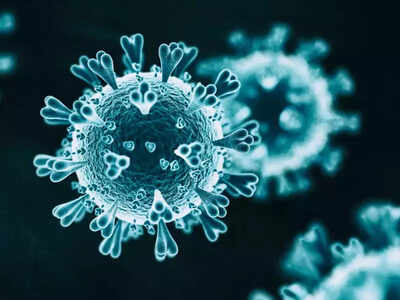Top Searches
- News
- City News
- bengaluru News
- Karnataka News Live Updates: State imposes restrictions on New Year celebrations
Karnataka News Live Updates: State imposes restrictions on New Year celebrations
In view of the Omicron variant of Covid-19, Karnataka chief minister Basavaraj Bommai on Tuesday said that the new year celebrations at public places will take place in a restricted manner, with celebrations allowed in restaurants and clubs with 50 per cent seating capacity and mandatory full vaccination. Stay tuned to TOI for all latest updates.Read Less

As per the first survey report of Karnataka released in November, 2020, sero prevalence was 27.7 %. However, in the state’s second survey, released in August 2021, the study found lower levels of estimated IgG prevalence at 15.6%. This was attributed to antibody waning.
State-wide study to assess the community spread
Sero survey findings reveal the extent of community spread as they hint at which stage of the pandemic the state or the city is in, helping authorities decide on strategies. As per the fourth sero survey conducted by the Indian Council for Medical Research, released in July, Karnataka has Covid seropositivity rate of 69.8% in general population. That was based on antibody tests done for 1,326 persons from Bengaluru Urban, Kalaburagi and Chitradurga districts, of which 926 persons had tested positive, showing the prior exposure to the viral infection.
Earthquakes of up to 3.3 magnitude hit about 70 kms north-northeast of Bengaluru
Earthquakes of up to a magnitude of 3.3 occurred about 70 kms north-northeast of Bengaluru on Wednesday morning, National Centre for Seismology (NCS) said. "Earthquake of Magnitude:3.1, Occurred on 22-12-2021, 07:09:36 IST, Lat: 13.59 & Long: 77.73, Depth: 11 Km ,Location: 70km NNE of Bengaluru, Karnataka, India", the NCS tweeted.
The government has zeroed in on three categories. In the low-risk category, pregnant women who come to antenatal check to clinics are to be covered along with children in the age group of 6-11 and 12-18. In the moderate category, the state aims to cover persons with high contact in the community such as vendors in markets, autorickshaw and bus drivers, healthcare workers, waste handlers, those working in markets, malls, retail stores, hotel staff, and workers near bus stops and railway stations. The high-risk category includes elderly persons and those with comorbidities.
Health department authorities said the government was in the process of procuring antibody kits for the same. “We would be using more than 40,000 antibody testing kits. Permission for direct purchase of kits at base price has been sought,” health commissioner Randeep D said.
Some of the metropolitan cities like Delhi and Mumbai have completed five rounds of sero survey so far. TAC members TOI spoke with said: “It’s high time the state conducted the third round. Now, we need to analyse the prevalence of IgG antibodies among vaccinated individuals and children. This will be unique compared to the previous surveys. It has been delayed by more than six months.”
3rd round of sero survey delayed by six months; kits being procured now
The Covid-19 technical advisory committee’s (TAC) suggestion to the government in July to conduct a third sero survey across the state and all age groups to assess the extent of the pandemic exposure has remained on paper. While experts say the Covid antibody levels analysed through such a survey — after the second wave — would help the state in pandemic management, the government has not acted on the suggestion even after six months.
Dr Arundhathi Chandrasekhar, mission director, National Health Mission, Karnataka, said the state government will continue to follow the current guidelines and there won’t be any changes. “As of now, we are sticking to the current guidelines,” she said.
As on December 21 morning, the state government had a total stock of 66.5 lakh doses of Covid-19 vaccines, of which nearly 19 lakh doses were Covaxin. Private hospitals have stocked up another 5.5 lakh doses of Covaxin. A majority of these doses are in Bengaluru’s private hospitals. Each Covaxin dose in the private sector costs Rs 1,410.
Covaxin open vial policy: State govt and private hospitals to stick to 6-hour usage
Bharat Biotech’s recent announcement on its open vial stability of Covaxin does not seem to have gone down well with private hospitals and even the state gover nment. On Monday, the vaccine manufacturer said: “Opened vial of Covaxin can be stored at 2 to 8 degree centigrade for up to 28 days and not required to be discarded immediately in a day or at the end of immunisation session.” This was in contrast to the earlier Covaxin usage guidelines of ensuring using up a vial within 4-6 hours.
During Christmas celebrations, mass gatherings are not allowed outside the premises. Prayers in the church are allowed. Church authorities should ensure that social-distancing rules are followed, Bommai said.
As far as clubs and pubs are concerned, DJ music and special events are not allowed. Large-scale parties are also not allowed in the state, the CM said. Similarly, there will be no DJs or parties in apartment complexes. Residents’ associations will have to ensure the rules are not violated. The entry is restricted to those who have been administered both two doses of Covid vaccination.
Chief minister Basavaraj Bommai said the decision has been taken at a high-level meeting with authorities and Covid expert committee members, who attended the meeting through video-conferencing.
No large parties, gatherings from Dec 30 in K’taka
The Karnataka government on Tuesday banned large gatherings in Bengaluru’s MG Road, Brigade Road and surrounding areas and rest of the state for New Year celebrations in the wake of prevailing Covid situation in the state. The curbs will be in force from December 30 to January 2. This is for the 2nd straight year the state has banned mass gatherings for New Year. However, the state has not imposed tough curbs for Christmas considering that the Omicron cases are still not quite alarming in the state.
